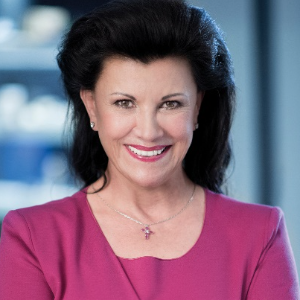Biography:
For almost 30 years, Anita Frauwallner has led Institut AllergoSan, an Austrian company that conducts scientific research in the field of probiotic medicine in cooperation with numerous European universities. Her declared goal is to pave the way for a preventive and holistic medicine that is based on natural substances that address the cause of the disease and still stand up to scientific scrutiny in every respect. She began her career at the University of Graz. After studying linguistics and working as a university assistant to Univ.Prof. Dr. Alfred Kracher, she devoted herself to in-depth training in naturopathic medicine and microbiome research out of personal interest. As the owner of one of the oldest pharmacies in Graz, the busy medical journalist worked for many years to establish the pharmacy as a health and advice centre and to improve communication between doctors and pharmacists.
In the first 10 years, the institute was run purely out of personal, scientific interest. From 2002 onwards, large research cooperations with two Dutch university hospitals were established. These resulted in studies on "multispecies probiotics for the treatment of antibiotic-associated diarrhoea" and on "allergy prevention during pregnancy" that received worldwide attention. Since that time, the dedicated expert on intestinal health has also been a consultant for naturopathic laboratory medicine and became a pioneer of an international network of evidence-based research laboratories as well as doctors with a focus on holistic medicine. She has also been able to pass on her knowledge as a successful author of books. "I have found my calling - my life is dedicated to creating awareness for the importance of those trillions of living organisms in our intestines, which we call probiotic - translated this simply means "for life", and I would like to add - for a healthy life, with natural means, which enable us to age in strength and dignity and without infirmity!"




Title : Successful probiotic prevention of allergies and colics in young children